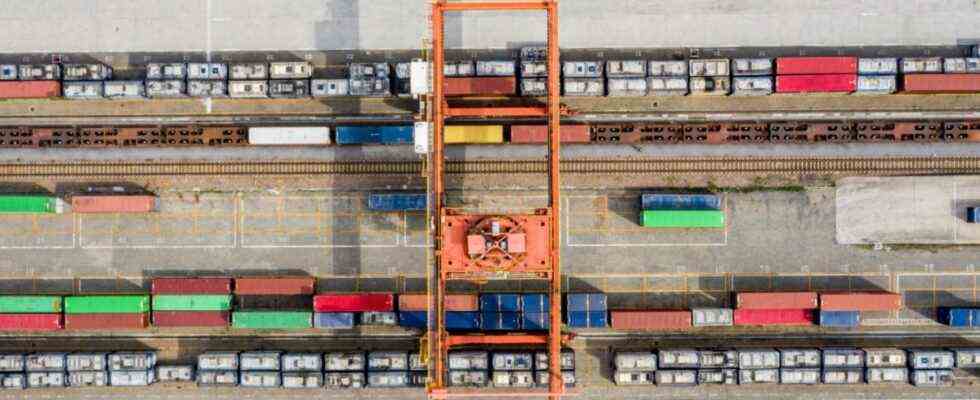The virus came back to China by plane. The Air China plane landed on July 10th CA910 from Moscow in the east Chinese city of Nanjing. One of the passengers was infected with the Delta variant and was apparently able to board the plane despite numerous tests before departure. After landing, the machine was cleaned and disinfected, and one of the cleaning staff was infected – despite having been vaccinated. From the airport, the corona virus spread again in the country: In Beijing, in Shanghai, even in Xinjiang, deep in the west on the border with Kazakhstan, diseases were suddenly reported. There are only a few hundred cases, but the excitement is great in China, it is the worst outbreak since the lockdown of Wuhan.
Gradually there are increasing voices in China who are gently suggesting a change of course, an end to the zero-case strategy that you have to learn to live with Corona. However, it doesn’t catch on: in the past year and a half, the propaganda has drummed into the Chinese that only in the People’s Republic is one safe from the insidious virus. The only chance to guarantee this is: borders tight. Travel between China and the rest of the world has hardly taken place since spring 2020. Only a handful of planes are allowed to land in China every day. After that, you have to be in hotel quarantine for at least two weeks; if you want to go to Beijing, you have to stay away from the capital for at least three weeks after landing.
New passports are only available in exceptional cases
This is becoming a problem for many international companies in China. Who else should you send as a manager when your home vacation suddenly lasts months and every business trip to Europe results in weeks of isolation? For many Chinese, the restrictions are even more severe, and the authorities only issue new passports in exceptional cases. Those who do not travel cannot bring the virus into the country.
Zero Covid is and remains the reason of state. Corona must be put down, is the order from Beijing. Governors and mayors are therefore meticulous to ensure that no clusters are created in their provinces and cities – a mini breakout is enough and the cadre is out of his job. Often a single case is enough, and school and kindergartens are closed, and mass tests are ordered. In a few days, millions of Chinese will have to have a throat swab. In order to manage the workload, the tests take place in public places, sometimes even in stadiums. Ten samples are then analyzed at once in the laboratory to save time. If there is a positive result, everyone has to start again.
In general, the contact tracking is defined very broadly. If, for example, an infected person has entered an office tower or visited a shopping center, everyone who was in the same place on the same day is usually sent to quarantine. This also applies to the Meishan Terminal in the port of Ningbo, 150 kilometers south of Shanghai, the third largest container port in the world and a gateway for Chinese exports such as furniture, housewares, toys and car parts that are shipped to the United States and Europe. Seven million containers are loaded into the Meishan Terminal every year. The plant has been idle since August 11th after a worker tested positive for Corona.
The health authorities in the southern Chinese metropolis of Shenzhen acted similarly strictly in May and temporarily closed the Yantian International Container Terminal. A good ten percent of Chinese export goods are normally loaded in Shenzhen: computers, microwaves, air conditioning systems. In the first two weeks of June, a total of 298 container ships with a capacity of more than three million containers could not call at Shenzhen. The damage was greater than the spring jam in the Suez Canal. How devastating the emergency shutdown in Ningbo will ultimately be depends on when operations restart.
Many companies in Germany are feeling the effects of the crisis
However, the effects can already be felt in Germany: material bottlenecks and higher costs are causing problems for many companies. According to a survey by the German Chamber of Commerce and Industry (DIHK) among almost 3,000 companies, 83 percent complain about price increases or delivery problems for raw materials, intermediate products and goods. “The current development can make the economic recovery process noticeably more difficult after the crisis,” says DIHK foreign trade director Volker Treier. Three quarters of the companies surveyed are struggling with a shortage of containers and a lack of freight capacities. The partial closure of the port in Ningbo caught the German economy at a time when it was already having to cope with considerable delivery problems.
The foreclosure has not harmed the Chinese economy so far, on the contrary: From April to June, the second largest economy grew by 7.9 percent year-on-year. All in all, growth in the first half of the year was 12.7 percent. “In general, the economy has steadily recovered in the first half of the year,” said the Beijing statistical office. However, the authority also warns of uneven economic development in the country and of incalculable effects of the pandemic in other countries. For the full year 2021, the World Bank is now assuming growth of 8.5 percent in a current study. The Chinese government is more cautious, with Prime Minister Li Keqiang announcing a target of “over six percent” in his opening address to the National People’s Congress in March.
8.5 or six percent? The leadership in Beijing has planned a proper buffer in the figures, which allows closings of ports and the forced quarantine of millions. There is currently no end in sight to the foreclosure.

